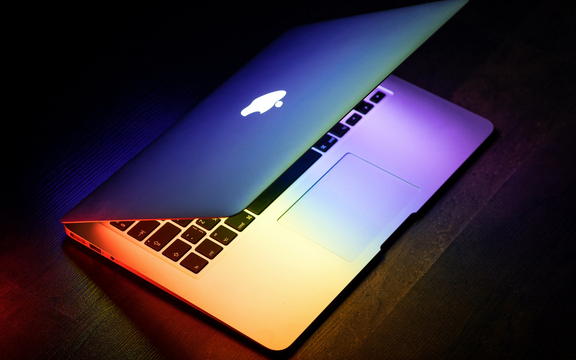Shop
Is Apple Selling Data? Find Out the Truth and What To Do About It

As one of the world's largest technology companies, Apple has prided itself on its commitment to user privacy. For years, the company has marketed itself as the go-to choice for those who want to keep their personal information safe from prying eyes.
However, recent revelations have called into question the extent to which Apple is actually following through on this promise. In this blog post, we'll examine the recent controversies surrounding Apple's selling of user data and its apparent disregard for privacy policies.
- " href="#span-style-font-weight-400-span">
- Is Apple Selling Personal Data?" href="#span-style-font-weight-400-is-apple-selling-personal-data-span">Is Apple Selling Personal Data?
- Apple's Privacy Policy: Is It Really Private?" href="#span-style-font-weight-400-apples-privacy-policy-is-it-really-private-span">Apple's Privacy Policy: Is It Really Private?
- " href="#span-style-font-weight-400-span">
- The Impact of Apple Selling Data" href="#span-style-font-weight-400-the-impact-of-apple-selling-data-span">The Impact of Apple Selling Data
- " href="#span-style-font-weight-400-span">
- How Do I Stop Apple from Collecting My Data?" href="#span-style-font-weight-400-how-do-i-stop-apple-from-collecting-my-data-span">How Do I Stop Apple from Collecting My Data?
- Turn Off Personalized Apple Advertising" href="#span-style-font-weight-400-turn-off-personalized-apple-advertising-span">Turn Off Personalized Apple Advertising
- " href="#span-style-font-weight-400-span">
Is Apple Selling Personal Data?
First, let's talk about the sale of user data. According to multiple reports, Apple has been selling data from its iPhone users to various companies, including Facebook. This data includes user location, demographics, and purchasing habits.
Tech giants may argue that the data is used for good, such as to enhance the user experience and provide personalized recommendations.
The third-party companies that Apple sells data to are mainly advertising companies, which use this data to target users with relevant advertisements. The advertisements are tailored to the user’s interests and are based on their previous searches, browsing history, and app usage. This data-driven approach is known as targeted advertising, and it is a lucrative business for both Apple and the advertising companies.
While this type of data sharing is not necessarily unusual in the tech industry, the fact that Apple is one of the biggest companies in the world and has long touted its commitment to privacy makes these revelations particularly concerning.
The sale of user data is especially troubling given the recent scandal surrounding Cambridge Analytica and Facebook. This data firm was able to obtain data from millions of Facebook users without their consent and used it to influence the 2016 US presidential election.
The fact that Apple is now also involved in the sale of user data raises questions about the company's true commitment to privacy.
Apple's Privacy Policy: Is It Really Private?
The sale of user data is just the tip of the iceberg when it comes to Apple's disregard for privacy. There have also been allegations that the company has been sneaking around its own privacy policy.
For example, Apple has been accused of using thrid-party contractors to listen to Siri recordings, third-party contractors to listen to Siri recordings, which is in violation of the company's own privacy policy. Additionally, the company has been criticized for not properly disclosing the extent to which it shares user data with other companies.
These allegations raise serious questions about the trustworthiness of Apple as a company. If Apple is willing to sell user data and violate its privacy policy, what other types of data is the company collecting and sharing without users' knowledge or consent?
The Impact of Apple Selling Data
The impact of Apple selling data is significant and affects both the company and its users. The sale of user data has serious consequences for privacy and security, and it has also raised questions about the ethics of data collection.
For users, the sale of their data means that their personal information is no longer secure. This information can be used to target them with advertisements, or it could be sold to other companies, which could use it for malicious purposes. This puts users at risk of identity theft and other privacy violations.
For Apple, the sale of user data is not only a breach of its privacy policy but also undermines the company’s reputation as a privacy-focused technology company. Apple’s users expect the company to protect their data, and the sale of this data has resulted in a loss of trust in the company.
How Do I Stop Apple from Collecting My Data?
In light of these recent revelations, it's more important than ever for consumers to take steps to protect their personal information. This means being careful about the types of data that we share online and with technology companies. It also means being vigilant about the types of apps and websites we use and making sure that we are aware of their privacy policies.
For those who use Apple products, there are several steps that you can take to protect your personal information. For example, you can adjust your privacy settings to limit the types of data that Apple collects from you. Additionally, you can use privacy-focused apps and services, such as encrypted messaging apps and browsers.
Turn Off Personalized Apple Advertising
According to Apple, you can control how Apple uses your data.
Apple claims that the ads you see in the App Store, Apple News, and Stocks don't access data from other apps on your iPhone. However, your search and download history may be used to deliver relevant ads to you based on what you read or who you follow.
To view this data, go to Settings > Privacy & Security > Apple Advertising > View Ad Targeting Information.
To limit Apple's ability to access personal data on your Apple device, go to Settings > Privacy & Security > Apple Advertising > toggle off Personalized Ads.
Turn Off Location Services
While turning off location services may limit Apple and third-party apps from fully functioning, it also protects you.
To turn off location services, go to Settings > Privacy & Security > Location Services, then toggle the switch off.
You can also choose to share your location (or not) with each specific app on your phone. Turn off precise location for each app you've downloaded under Location Services, select an app, then turn Precise Location off.
Be Smart: Go SLNT®
It's clear that consumers need to be more proactive about protecting their personal information, and that we need to be more vigilant about the types of companies and services that we use. While Apple may have once been the go-to choice for those who want to keep their personal information safe, it's clear that the company has fallen short in its commitment to privacy.
Protecting your private information and who you share data with is up to you. But to protect your privacy, security, and your health, we recommend using SLNT® gear.
Whether you choose a tablet sleeve or one of the new E3 Faraday Bags Collection bags, you can feel confident in knowing that—as long as your electronic devices are enclosed—it's impossible to track you.
Recent Articles
Newsletter
Join Our Community: Privacy, Security, Health Updates
